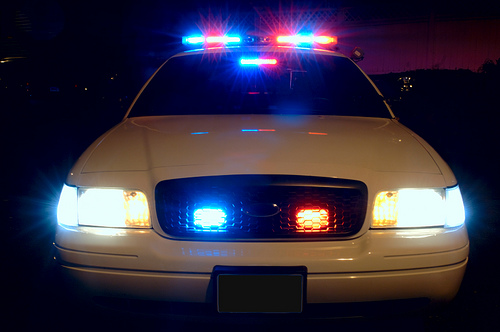What to say and why!
 Before a person is arrested and charged with any crime there will be some type of police interaction. During this interaction the responding officer will more than likely ask the person some questions. During this initial interaction police don’t have to advise a person of their constitutional rights to remain silent because at that point they are not in custody and the officer is simply responding to a call for assistance. I have written previous articles on the three types of police encounters (mere encounter, detention, and custodial interrogation) and I encourage you to read this article for more information on these three types of interaction. Remember that if they are asking questions they probably don’t have enough evidence against you and you’re just helping them.
Before a person is arrested and charged with any crime there will be some type of police interaction. During this interaction the responding officer will more than likely ask the person some questions. During this initial interaction police don’t have to advise a person of their constitutional rights to remain silent because at that point they are not in custody and the officer is simply responding to a call for assistance. I have written previous articles on the three types of police encounters (mere encounter, detention, and custodial interrogation) and I encourage you to read this article for more information on these three types of interaction. Remember that if they are asking questions they probably don’t have enough evidence against you and you’re just helping them.
It is important to understand that anything you tell a police officer is admissible in court and police will often ask questions to elicit incriminating responses from a potential suspect especially cases involving DUI, drugs, and guns. The police officer may ask any of the following questions:
- Were you driving the car?
- Where were you coming from?
- Are you feeling ok?
- Have you been drinking?
- Is that your bag?
- Do you mind if I look in the bag?
- Do you mind if I look in your house or your car?
- Can I look in the trunk or that closet?
- Why do you think you need a lawyer?
- Things would go a lot faster if you just let me check your car.
If you notice all of these questions aren’t necessarily asking whether you committed a crime and so more than likely a court wouldn’t find that they are meant to obtain a potentially incriminating statement. Courts in Pennsylvania are especially mindful of police officers asking questions which attempt to invoke an incriminating response. An incriminating response can trigger certain constitutional rights under the Fourth and Fourteenth Amendment to the United States Constitution. Prior to asking such a question police officers are obligated to tell someone that they have the right to remain silent and a right to an attorney. Further, police must tell someone that anything this person tells them can be used against them in court. The best answer to any of these questions is simply to remain silent but be polite to the police officer at all times. Simply tell the officer that you don’t feel comfortable answering any questions without an attorney and you’re not sure whether or not you need one at this time.
The officer may give you a hard time but it’s important that you remain strong and don’t give any responses especially those involving whether or not you are driving a car or consuming alcohol. The police are using asking this question because they didn’t see you drive the car and probably didn’t observe you drinking alcohol. The issue of control (driving a car) and impairment (consuming alcohol) are critical to any DUI case and the most serious DUI charges require that the prosecution establish beyond a reasonable doubt that you were impaired (BAC over .08) within two hours of operating a motor vehicle. Obviously if the police didn’t see you operate the car this will make the prosecution’s case much more difficult against you and could provide your criminal defense lawyer with an opening to establish reasonable doubt and lead to your acquittal.
Answering questions even if you aren’t in custody can also cause a problem if you are eventually charged with a drug or gun crime. Police will often enter a home and ask if the person lives there or who else lives there with them. Police are asking these questions to help build the possession case or worse a possession with the intent to deliver case (a felony in Pennsylvania).
For more information on criminal defense tactics and strategies in Pennsylvania, read my books or watch my videos.
Contact Our Criminal Defense Lawyers in PA & NJ
Please click here to contact our Philadelphia criminal defense lawyers. We offer free case reviews and serve the following areas in Pennsylvania and New Jersey, Atlantic City, Camden, Cherry Hill, Chester, Conshohocken, Doylestown, Media, Norristown, Philadelphi


